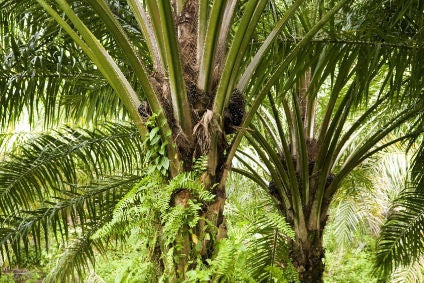
Wilmar International, the agribusiness accused by Amnesty International of running Indonesian palm oil plantations that contribute to child labour and human rights abuses, has called for collaboration to achieve a “labour transformation” across the global palm oil industry.
The Singapore-based palm trading company’s response came after Amnesty released a report today (30 November) accusing some food manufacturers that use palm oil of inadvertently supporting abuses, such as “children as young as eight doing hazardous, hard physical work, sometimes dropping out of school to help their parents on the plantation”.

Discover B2B Marketing That Performs
Combine business intelligence and editorial excellence to reach engaged professionals across 36 leading media platforms.
Wilmar said: “We welcome this report, as it helps highlight labour issues within the wider palm oil industry and in Indonesia specifically. Wilmar has put a lot of effort and systems in place to deal with labour and social issues in our operations and supply chain. We acknowledge that there are ongoing labour issues in the palm oil industry, and these issues could affect any palm company operating in Indonesia. The focus on Wilmar, as the largest processor and merchandiser of palm and lauric oils worldwide, is often used to draw attention to problems in the wider palm oil industry.”
Perpetua George, assistant general manager for group sustainability at Wilmar, addded: “Many of these highlighted issues need a bigger platform than sustainable certification to resolve; they require collaborations between governments, companies, and civil society organisations like Amnesty International. Much like the large steps taken in the implementation of no deforestation commitments, it takes more than just companies to help overcome these issues that affect the lives of plantation workers. We have reached out to Amnesty International to work more collaboratively with the industry and we hope that this can be a reality.”
Nestle, one of the food companies named in Amnesty’s report as allegedly being linked to palm oil from plantations run by Wilmar in Indonesia, has told just-food: “Practices such as those identified have no place in our supply chain.”
A Nestle spokesperson said: “Nestle engaged extensively with Amnesty during the drafting of the report, including supplying detailed information on our relationship with palm oil supplier Wilmar and on our actions to address human rights and labour rights issues in the sector. We will investigate allegations related to our purchasing of palm oil, along with our suppliers. Wilmar supplies around 10% of the total palm oil that we use in our products. We are working closely with the company to improve traceability. Now, 83% of the volume that we purchase is traceable back to the mill of origin and 11% is traceable to plantation. This traceability does not yet extend to the plantations at the centre of the allegations in Amnesty International’s report.

US Tariffs are shifting - will you react or anticipate?
Don’t let policy changes catch you off guard. Stay proactive with real-time data and expert analysis.
By GlobalData“For six years, we have worked with partners, including The Forest Trust, to improve transparency, traceability and supplier behaviour in the palm oil industry. We have processes in place to assess where the risk of labour or human rights violations exist in our supply chain and we are taking action to address these. Where our suppliers fail to meet the provisions in our supplier code, including on labour rights, we will suspend them.”
However, the spokesperson added: “Given the complexity of the palm oil industry and the estimated four million people that it employs in south-east Asia, progress in address labour and human rights issues relies on cross-industry efforts. We will continue to play an active role, alongside others.”
A spokesperson for Kellogg, another food company highlighted by Amnesty’s report, told just-food: “Kellogg is committed to working with our global palm oil suppliers to source fully traceable palm oil to known and certified sources that are environmentally appropriate, socially beneficial and economically viable. If we find, or are made aware of, any supply chain violations of our global palm oil principles, we work with the supplier to understand corrective actions and ensure they understand our commitments. If the concerns are not adequately addressed, we take action to remove them from our supply chain.”
The spokesperson added: “As a global business, we believe it is in our best interest to protect and advance the cause of human rights in our operations and value chain. That is why we are committed to respecting human rights in accordance with international standards like the International Labour Organization, UN Guiding Principles, and the Universal Declaration of Human Rights. We believe these rights are inherent for all human beings and we acknowledge that these rights are interrelated, interdependent, and indivisible.”
Unilever, another company highlighted by Amnesty, told just-food it welcomed the report and was “deeply concerned by its findings”.
A spokesperson said: “We will engage with our industry partners to investigate the grievances the report raises and take action to address them. Although significant progress has been made to tackle the environmental issues associated with palm oil cultivation, much more needs to be done to tackle the deeply concerning social issues prevalent. We have started this journey and are committed to working with partners to accelerate positive change.”
“We also recognise more can be done within our own supply chain to independently verify that the palm oil we use is both environmentally and socially sustainable. To tackle this, we have developed a programme for risk verification which we have piloted through three independent assessments. Our priority now is to scale this up, working with our peers and suppliers. We are also carrying out an independent expert review of our grievance procedures to identify if there are ways in which we can improve them. We would be very willing to engage with Amnesty International to investigate any specific grievances they have identified.”





